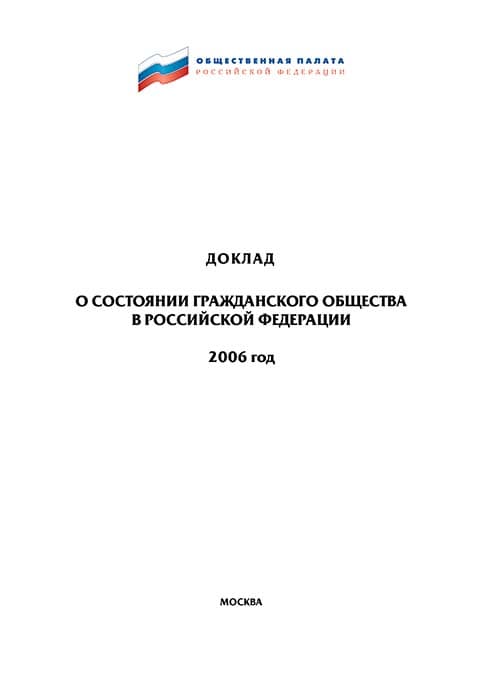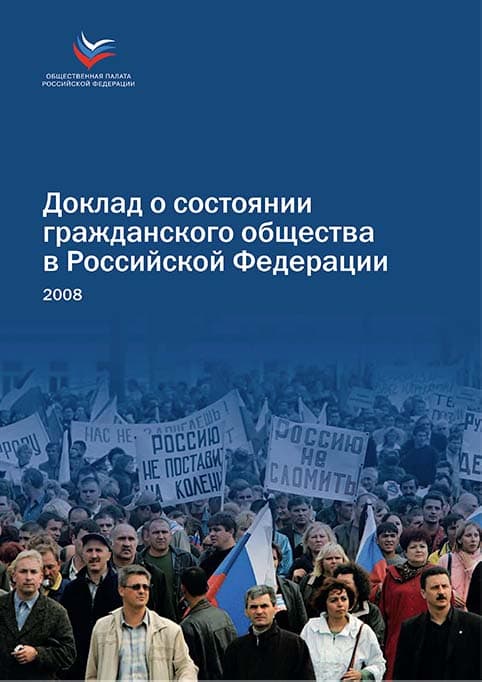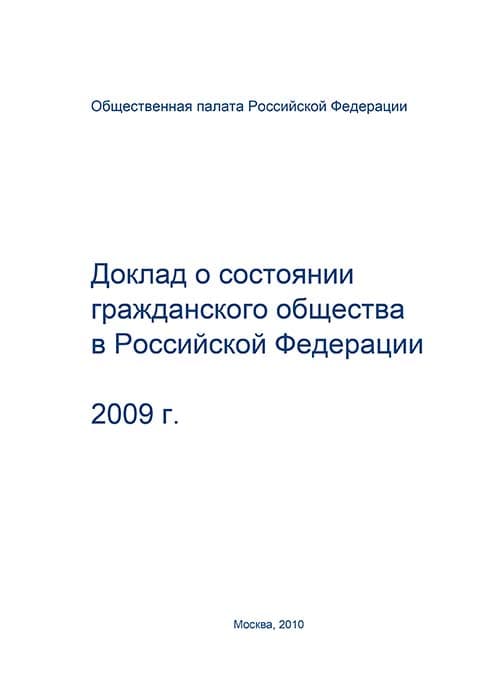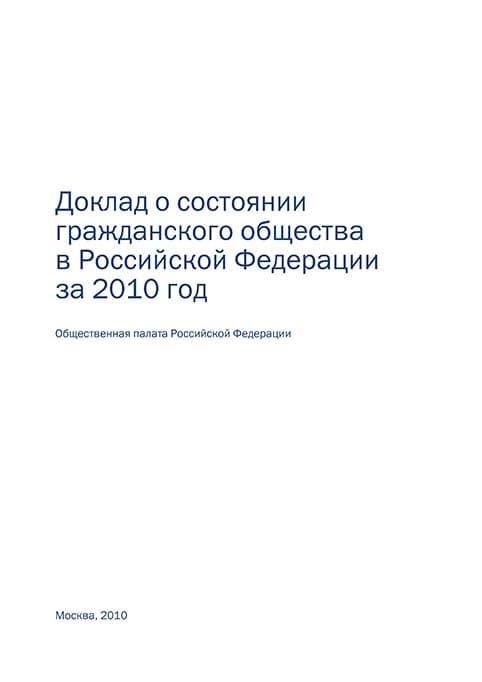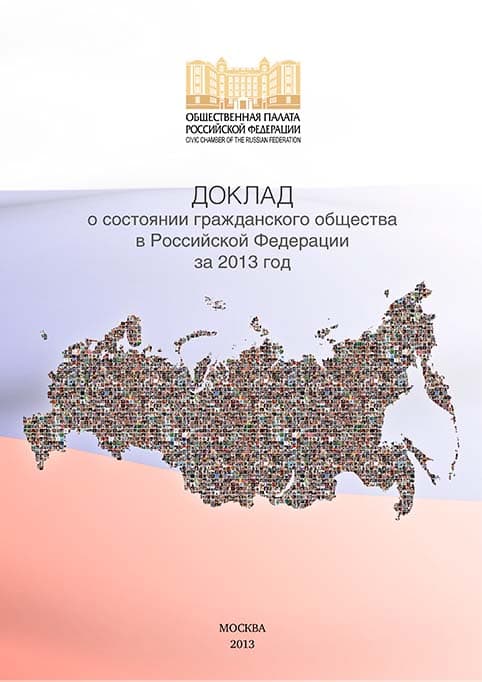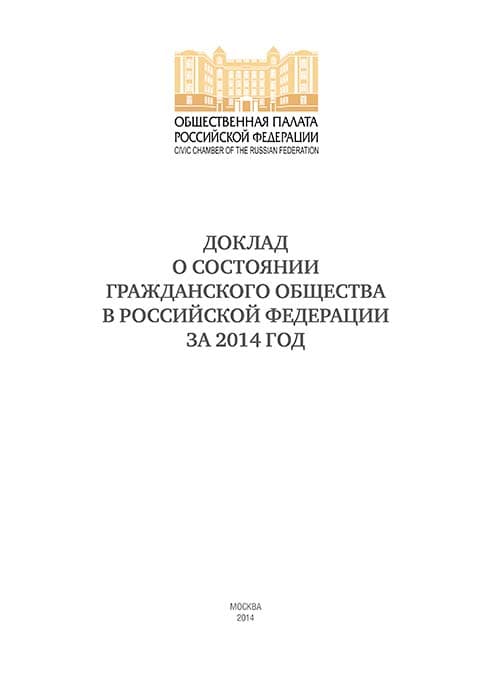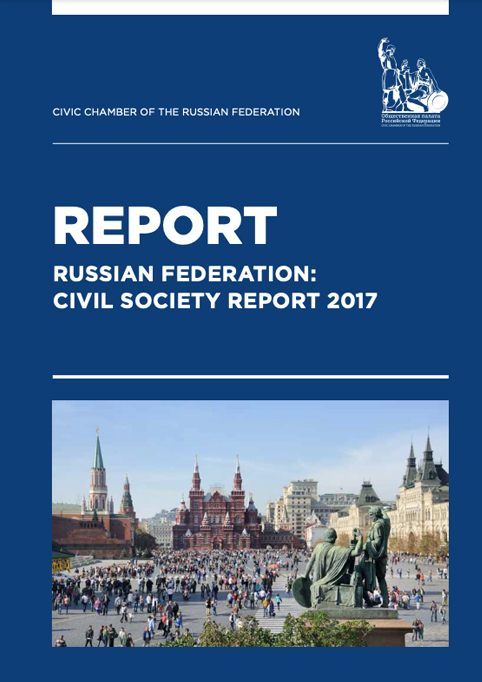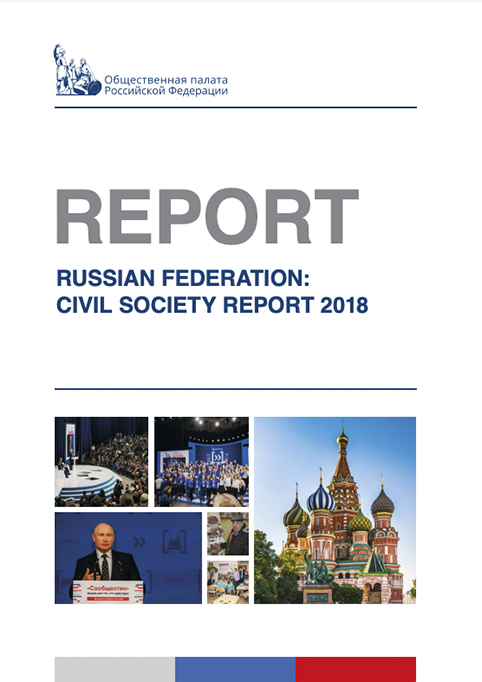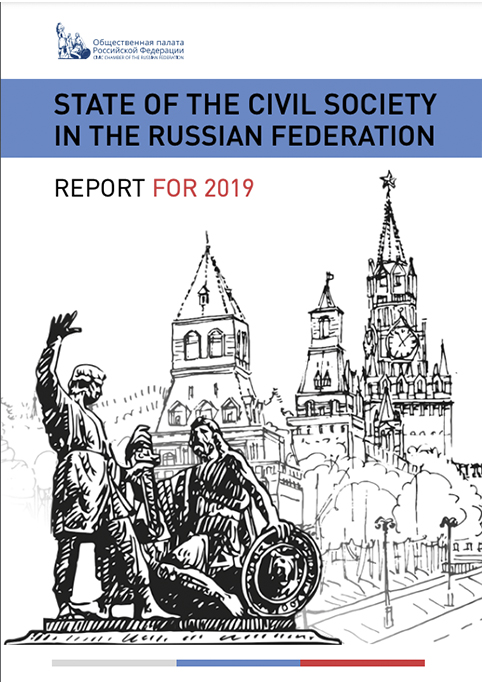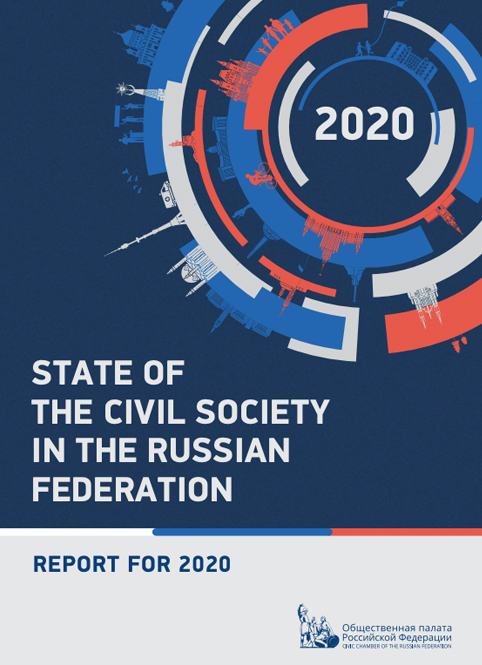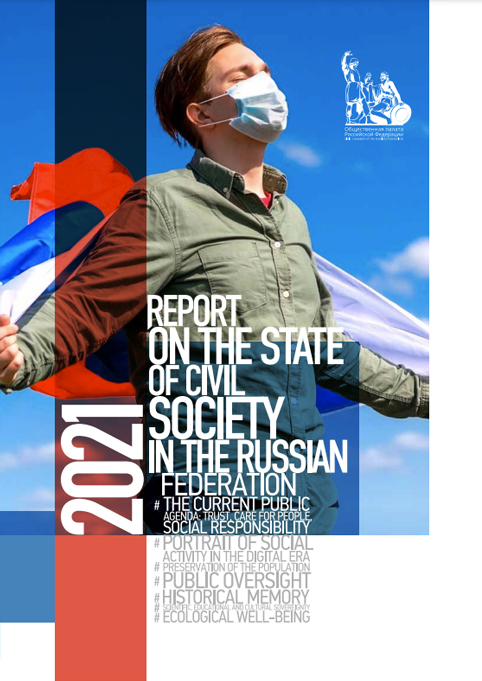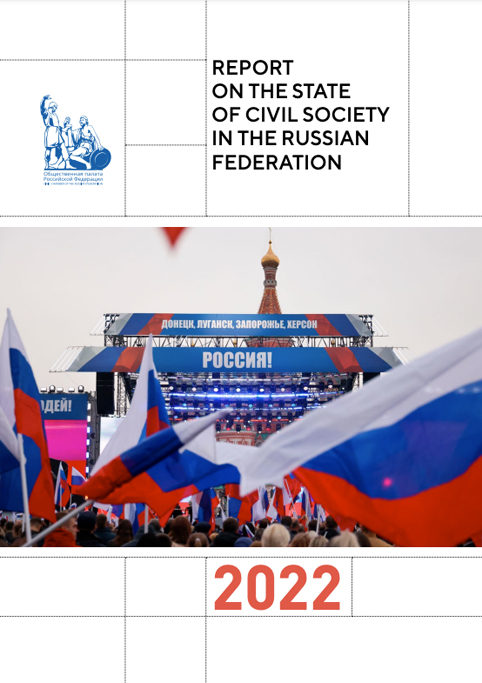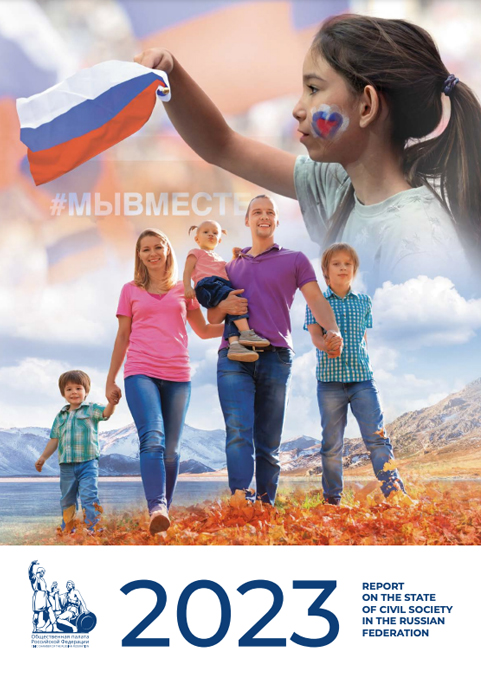7. Conclusion. Public Initiatives for a New Era
Plenary session of the final forum “Community” Russia 2030: “Public Initiatives for a New Era.” November 1, 2024. Press Service of the Civic Chamber of the Russian Federation.
In the coming year, the Civic Chamber of the Russian Federation will celebrate its anniversary—20 years since the law on the “Civic Chamber of the Russian Federation” came into force and its first composition was formed.
The upcoming anniversary year will also be a year of summarizing activities over the two decades for the public institution, a year of deep analysis and reflection on the results that have been achieved, and the socially significant problems for which optimal solutions have not yet been found.
As we begin to summarize the development of this public institution, we would like to highlight the key events, trends, decisions, and initiatives that have become defining milestones impacting the development of civil society and its institutions over this time.
2006
#The start of state support for nongovernmental organizations
The possibility of state funding for nongovernmental projects through grant distribution based on open competitions, which were also conducted with the assistance of the Civic Chamber of Russia, marked a significant shift in the development of civic initiatives in the country.
2007
#Establishment of the institution of Public Councils
The creation of public councils under federal executive bodies, the bodies of power of Federation subjects, and local governance provided civil society with another important mechanism for public participation in the exercise of public authority. The Civic Chamber played a significant role in the formation of public councils, and its members joined the majority of the established advisory bodies.
2008
#Systemic changes in the development of civil society
The Civic Chamber published the first results of new studies of key social practices of civil society that form its foundation: volunteering and charitable activities, participation in the activities of nonprofit organizations and initiatives of informal citizen associations, among others. A comprehensive expert assessment of civil society’s impact on governmental and public life was presented.
2009
#Russia, forward!
Civil society actively participated in the discussion and resolution of problems related to the international economic crisis, which also affected Russia. Throughout the year, public organizations conducted monitoring of the development of crisis phenomena by industry and region. Based on independent monitoring, reports and analytical notes were prepared for the general public and the country’s leadership. The 2009 Annual Report of the Civic Chamber was no exception.
2010
#Public diplomacy
Public diplomacy has become one of the most dynamically developing and influential areas of policy. In 2010, the Concept of International Activities of the Civic Chamber of Russia was developed and approved. From this year onwards, the Civic Chamber has continued to systematically expand constructive interaction with foreign public and civil organizations.
2011
#Social networks and the blogosphere
Civil society has become more “tenacious,” technologically advanced, and information literate. The use of new technological capabilities allows for problems to be quickly communicated to a wide audience, facilitates the mobilization of public opinion, and supports the development of consolidated positions. The Internet and social networks are gradually becoming the most significant tools for civic self-organization. Public institutions, including the Civic Chamber, actively contribute to the institutionalization of public initiatives.
2012
#Citizen self-organization
The relationship between authorities and society became the focus of civil society discussions in 2012. During this period, the Civic Chamber of Russia noted the formation of a pronounced public demand for justice within society. The relevance of problems such as the establishment of inequitable relations with officials, the low degree of information provision, and the lack of participation of interested citizens in the process of making and implementing management decisions indicated the need to develop and apply new social technologies for reconciling public interests.
2013
#Public oversight
The participation of civil society in the sociopolitical process takes on various forms, ranging from public oversight to various public procedures. At the level of public institutions, active discussions on legislative initiatives for regulating this activity are underway. Following the meeting of the Council for Civil Society and Human Rights Development in September 2013, the President of Russia instructed to prepare a draft federal law “On the Foundations of Public Oversight in the Russian Federation” for submission to the State Duma of the Federal Assembly. The adoption of the Public Oversight Law in 2014 marked a significant step towards the development of civil society in the Russian Federation.
2014
#Crimean spring
The challenges faced by Russia in 2014—such as the Ukrainian crisis, the reunification with Crimea, attempts at international isolation, and economic pressure—became factors of unprecedented patriotic upsurge and public consolidation among citizens. In 2014, for the first time, the composition of the Civic Chamber of the Russian Federation included representatives from all subjects of the Russian Federation, including the Republic of Crimea and the city of Sevastopol, as per the federal laws signed by the President of Russia.
2015
#Community forums
Since 2015, the Civil Forums “Community” have become a new long-term format for the Civic Chamber of Russia’s work with civil society. In 2015, nine “Community” forums were held in various regions of Russia, including the city of Sevastopol. Over the years, the “Community” forums have established themselves as one of the leading platforms for discussing crucial issues of the country’s socioeconomic development.
2016
#Development of the third sector
The Civic Chamber of Russia notes the progressive development of the nonprofit sector in the Russian Federation, the growth of its economic stability, the formation of skills for working with government authorities, benefactors, and the media, as well as the involvement of various social strata in the initiatives promoted by NPOs.
2017
#Active patriotism
Against the backdrop of the dynamic growth of civic activity, the content of patriotism fills a wide variety of public movements and projects oriented towards joint meaningful actions and the realization of common goals. Solidarity is becoming a new practice and value for Russian civil society. Volunteering in various areas of public life is becoming truly widespread.
2018
#May decrees
Achieving the goals of national projects outlined in the May decree of the President of Russia has become the main national sociopolitical task. The Civic Chamber of Russia, together with the civic chambers of the constituent entities of the Russian Federation, has engaged in monitoring the implementation of national projects, helping civil society articulate its interests and shape them into concrete, actionable proposals for the authorities.
2019
#Public-state partnership
The increase in the state’s trust towards public institutions has significantly expanded the role and participation of civil society in the country’s development. On this foundation, a new standard of civil society participation is gradually being formed, which implies a transition from control to involving society in the preparation of major governance decisions based on mutually responsible partnership with the state.
2020
#Constitution
The President of Russia proposed a series of amendments to the Constitution of the Russian Federation through a nationwide vote, aimed at further developing the country. The active participation of civil society in the preparation and discussion of the constitutional amendments and the subsequent nationwide voting became the basis for a national consensus around the updated Fundamental Law of the country.
2021
#WEARETOGETHER
The COVID-19 pandemic dealt a treacherous blow to all spheres of public life without exception, and in one way or another, every citizen in our country faced its consequences. Under these conditions, civil society was able to consolidate and join forces with the state to mitigate and eliminate the consequences of this global biological catastrophe.
2022
#Support for special military operation
Since the beginning of the special military operation, the primary task for Russian civil society institutions has been to form a unified humanitarian space, creating conditions for public, project-based, and socially beneficial activities across the territories of the new regions. The Civic Chamber of Russia became one of the central platforms for implementing humanitarian projects, providing systematic assistance, and fostering interaction at the level of public institutions and nonprofit organizations.
2023
#Integration of new territories
Throughout 2023, under the coordination of the responsible ministries and agencies, comprehensive work was deployed to ensure the security, restoration, and socioeconomic development of the new territories. Russian civil society made a significant contribution to the integration of the new regions into the all-Russian socioeconomic and cultural space during 2023. Alongside other institutions, the Civic Chamber focused its efforts on assisting with the implementation of civil initiatives in the new regions.
Taking into account the national development goals of the Russian Federation for the period up to 2030 and looking ahead to 2036, defined by the President of Russia in May 2024, the Civic Chamber of Russia will continue in 2025 to monitor civil society regarding the satisfaction with the progress of implementing national projects and achieving national development goals. It will provide its platform for extensive consultations with representatives of the nonprofit sector, business, expert, and professional communities to gather proposals for adjusting national projects to ensure the achievement of planned indicators. An equally important part of the work will be coordinating public initiatives with key government bodies, coordination and advisory bodies, and relevant associations (unions).
Among the key challenges of 2025 noted in the national development goals, the Civic Chamber plans to focus its efforts on the following areas within its authority: ensuring demographic growth, achieving technological leadership and environmental well-being, strengthening human resources, modernizing the education system, creating conditions for fostering a patriotic and socially responsible personality, economic growth, and comprehensive territorial development.
In this context, further improvement of forms and methods of public control appears relevant, including modern challenges and threats. It is also significant to increase the effectiveness of public oversight and popularize such forms as public verification and public examination, which are effective tools for promptly identifying problematic issues in various areas of public relations, developing proposals for their resolution, and involving citizens in state affairs management.
One of the main priorities of state social policy today is the support of veterans of the special military operation and their families. The Civic Chamber, along with other public institutions, will continue active and multifaceted work to create a sustainable support network for SMO veterans and their families. Social adaptation of former military personnel, combat participants, and providing them with psychological, medical, and legal assistance are all becoming part of the new social reality, in the harmonization of which civil society plays a key role.

